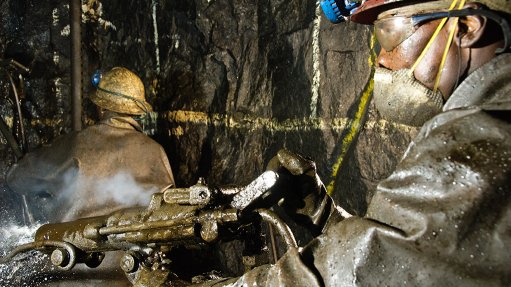
JOHANNESBURG – South African platinum producers are preparing for significant wage demands as workers eye windfall earnings from a rally in metal prices.
The Association of Mineworkers and Construction Union (AMCU) is meeting its members across the country’s so-called Platinum Belt this week, before presenting demands to seven producers, including Anglo American Platinum, Sibanye Gold, and Impala Platinum Holdings Friday, Secretary General Jeffrey Mphahlele said. The largest and most militant labor organization in the industry is aware that higher palladium and rhodium prices, plus a weaker rand, have boosted miners’ profits.
AMCU will make “substantial” demands in the coming weeks, said Dick Forslund, who has previously advised the union and made a presentation at an AMCU conference on June 4. Those demands will go beyond AMCU’s core target for the past eight years of raising basic monthly pay to R12 500, said Forslund, adding that the lowest-paid workers currently receive R10 800.
“They know platinum companies are doing well,” said Forslund, an economist at Alternative Information and Development Centre. “It would be very hard for mining companies to plead poverty.”
In 2016, the union accepted a 12.5% wage increase after initially demanding 47%. Two years before that AMCU led the industry’s longest-ever strike, costing billions of dollars of revenue and wages.
“We expect another tough round of negotiations,” Jana Marais, spokesperson for Anglo Platinum said. “Our employees’ disposable income has been under increasing pressure in a difficult economy, while the platinum mining industry also continues to face significant challenges.”
While annual inflation slowed to 4.4% in April, fuel costs have surged and bread and cereals rose by 6.1% from a year earlier.
The union has held mass meetings at the platinum mines all week.
Still, the wage demands of workers must be set alongside the claims of investors, who have received few dividends from South African platinum producers over the past decade, said Rene Hochreiter, an analyst at Noah Capital Markets.
“If companies give more than 4% or 5%, then I would be very upset if I was a shareholder,” Hochreiter said. “Why should workers be more equal than shareholders who have provided a lot of capital.”